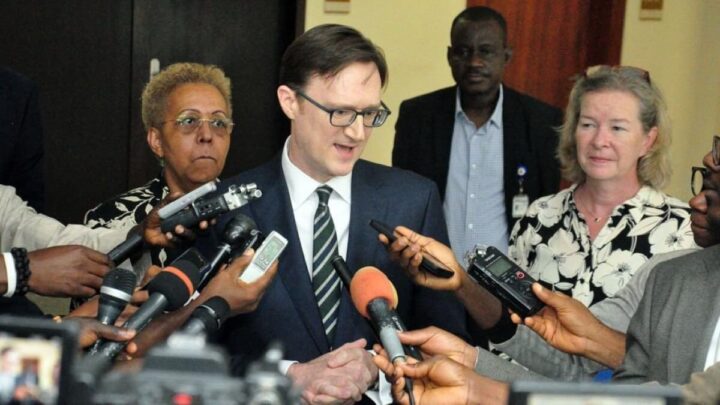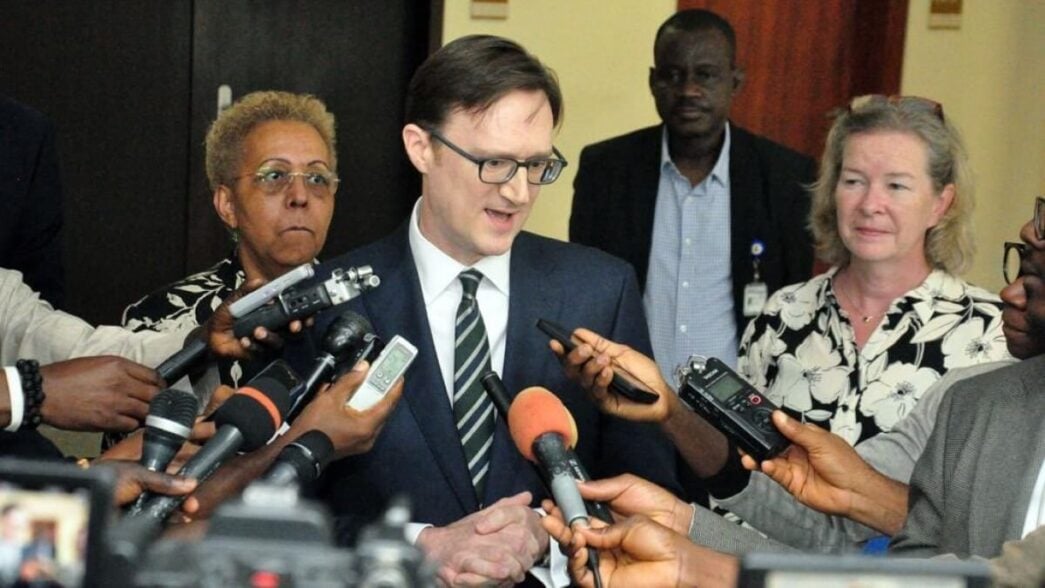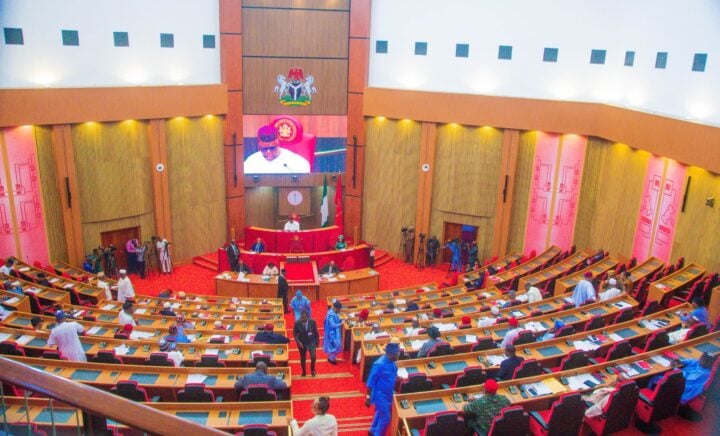Richard Montgomery, British high commissioner to Nigeria, taking questions from the press | File photo: Sun newspaper
Richard Montgomery, the British high commissioner to Nigeria, says Africa’s most populous nation has morphed into a more investible destination.
He attributed the progress to President Bola Tinubu’s “big and bold” economic reforms.
Speaking during a press briefing in Abuja on Wednesday, Montgomery said the UK sees growing opportunities in Nigeria for a combination of reasons.
“I’ve been very public previously about commending the big and bold economic reforms being taken by His Excellency, President Bola Ahmed Tinubu,” he said.
Advertisement
“We all know about the abolition of the fuel subsidy, we all know about the unification of the exchange rate system, and my headline this morning is that these economic reforms are paying off, and these economic reforms are now making Nigeria more investible.
“I realise that some of these reforms for ordinary people are painful.
“Inflation is still high, it’s in the 20 percent territory, the mid-20s. And it’s going to take time to bring that rate down.
Advertisement
“But we can see very good prospects for that rate coming down in the coming months and years.”
HIGH COMMISSION AGREES WITH WORLD BANK’S NDU
He said the commission agrees with the World Bank’s May 2025 Nigeria Development Update (NDU), whose main thrust is that the naira is now more stable, adding that a predictable economic environment buoys investments.
“Foreign exchange reserves are up, significantly up, so that makes Nigeria less risky. There’s been a very big increase in government revenue collection, not by raising tax banks, but by tax administration and management,” Montgomery added.
“It’s almost a 90 percent increase in the amount of resources we’ve collected, partly through administrative management and making sure that revenues from various MDAs reach the treasury, and that increase in revenue means reductions in fiscal deficit.
Advertisement
“It means that the combination of increased revenue and the abolition of the fuel subsidy have doubled federal allocations to the states, enabling more investments in infrastructure as well as public services.
“Most importantly, we’re seeing a growth rate in Nigeria too, so between 2015 and 2019, the growth rate in Nigeria was an average of 2 percent.
“It’s now, in the last 12 months, at least about 3.5 percent. But most positively, in the last quarter for which we have data, it’s up to 4.6 percent. So there’s a real uptick in growth.”
The British envoy added that businesses are looking to expand and optimism is growing, as evidenced by a significant rise in the purchasing manager’s index (PMI).
Advertisement










